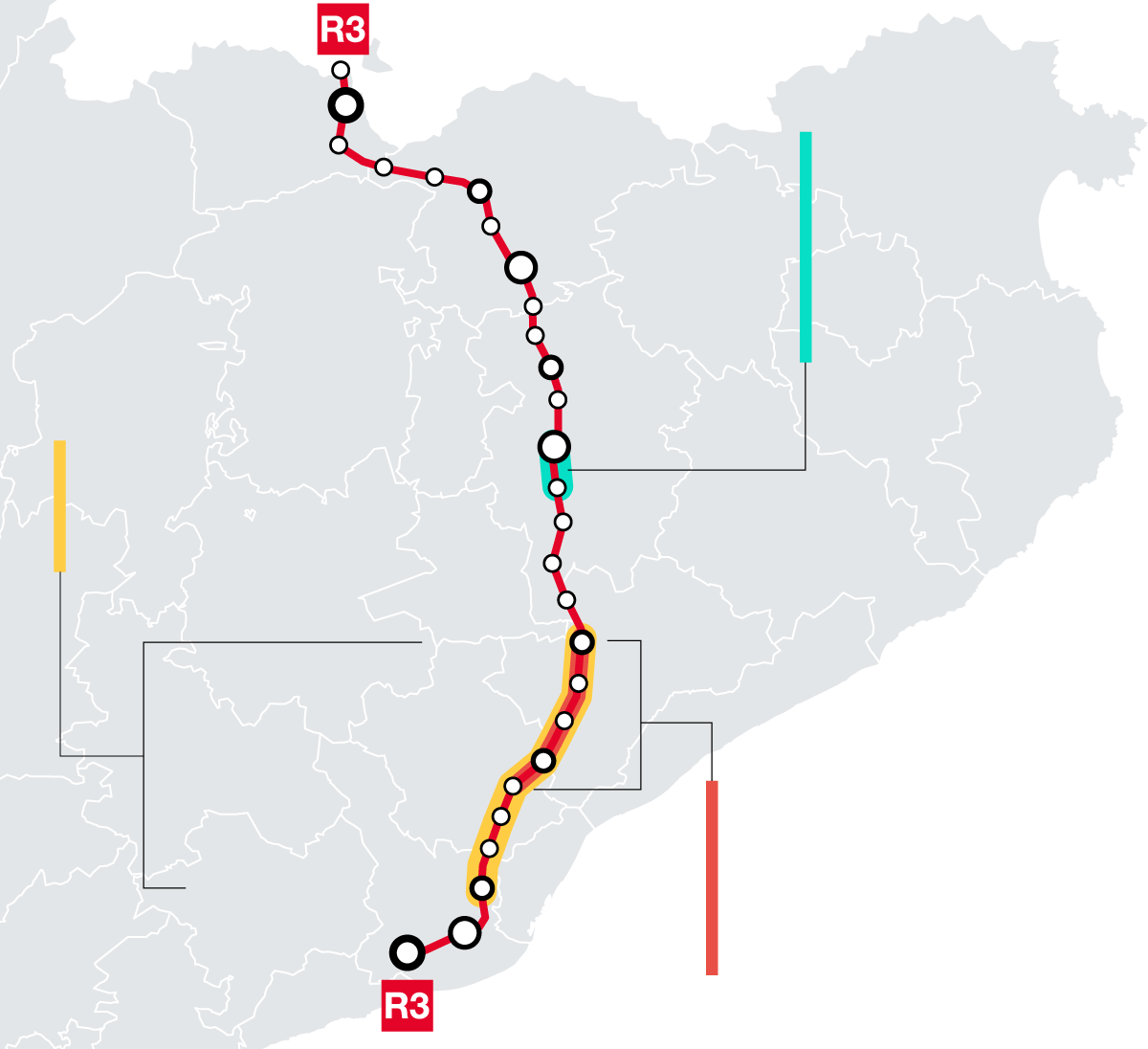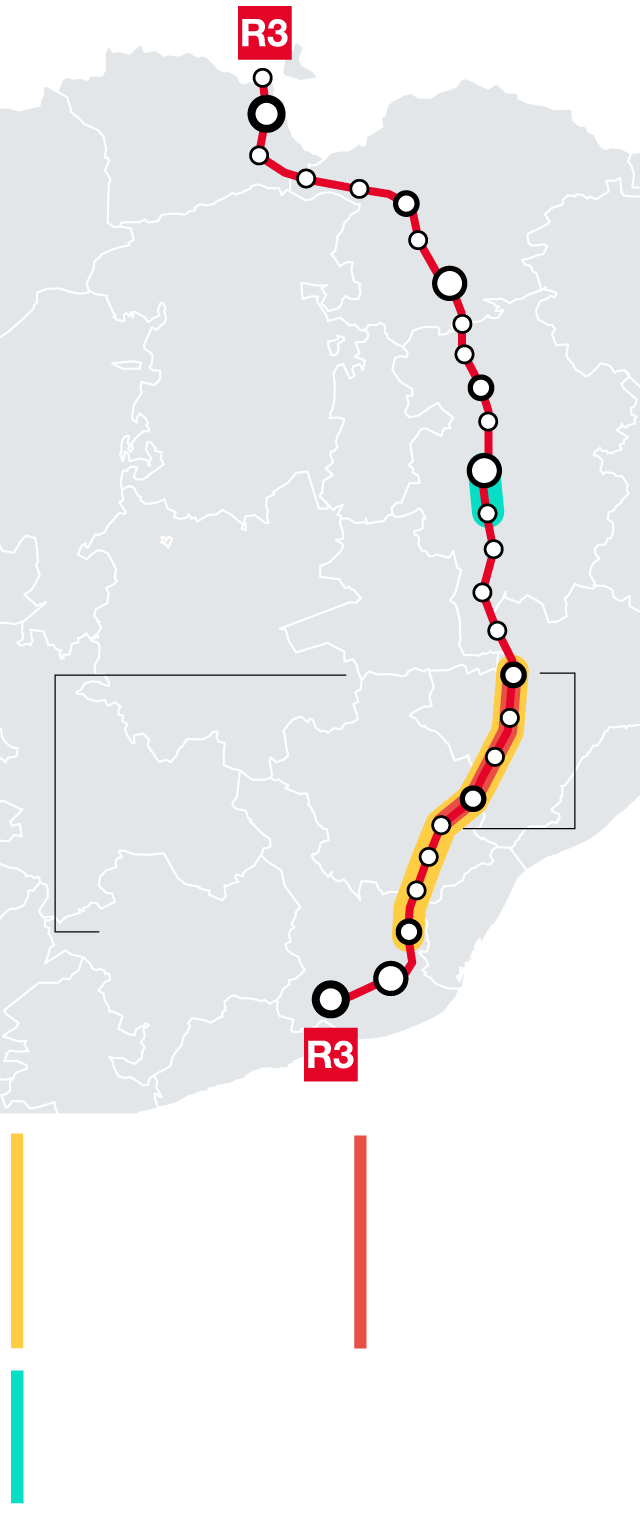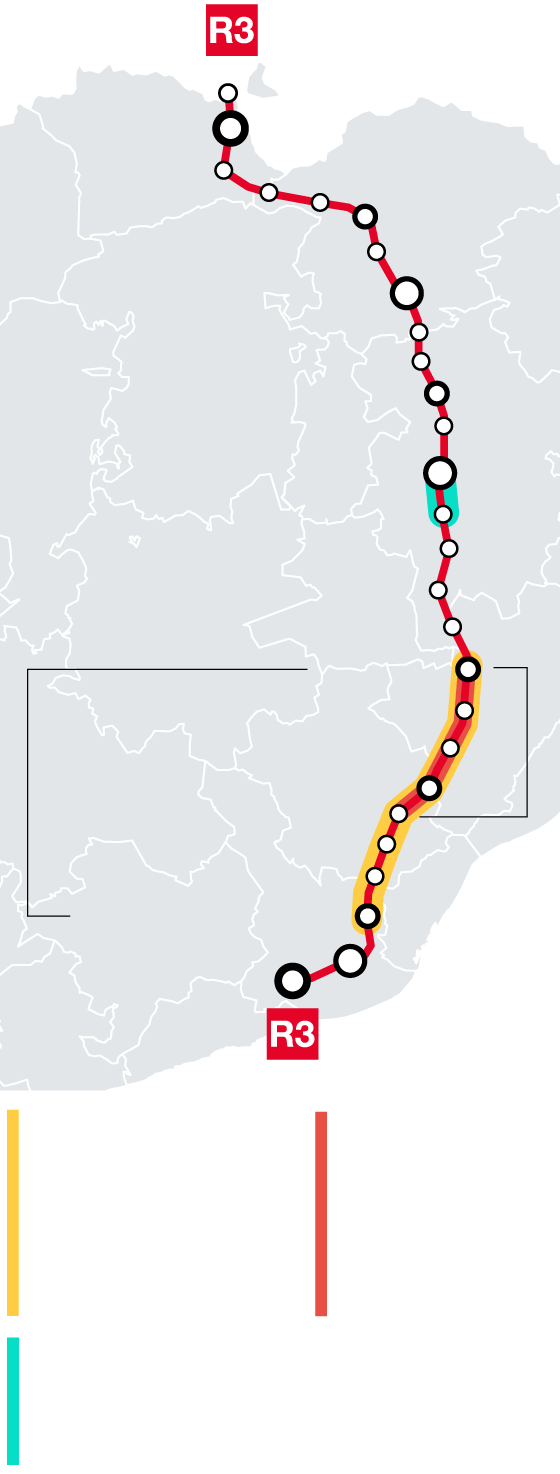The bus service will connect Barcelona—from Fabra i Puig station—with all the municipalities on the line that will be left without trains. This means that they will stop at the stations of Mollet-Santa Rosa, Parets del Vallès, Granollers-Canovelles, Les Franqueses, and La Garriga. There will also be direct shuttles from La Garriga, Parets del Vallès, and Centelles to Fabra i Puig (in reverse). At the same time, there will be direct buses between Centelles and Vic in both directions.
First day of the major road closure on the R3: the bus ride "is even shorter than the train"
The road service operates without major incidents throughout the morning.

CentillasThe massive closure of commuter service on the R3 line, which will disrupt service for 16 months, has already begun. For now, the first phase of the operation began this Tuesday, which will mean no trains will run between La Garriga and Montcada Bifurcació station until at least May 2026. Renfe and Adif launched today the alternative transport plan, with buses, which both companies assumed would make journeys 20 to 30 minutes longer than usual. But so far, this has not been the case. Irina, a university student, is "more than delighted" with the implementation of direct buses at Fabra i Puig station: "The journey is even shorter than with the train; I think it's a convenient alternative while the construction work is underway."
The closures at various points along the line—to carry out the track-doubling works on the R3—will extend well beyond May 2026 and will last until January 2027. In total, they will last 16 months, making this service interruption the longest ever. That's precisely why the alternative transport service is important. And, for now, it has convinced regular passengers.
At Centelles station, one of the key points of the macro-shutdown, there are many signs indicating the buses, which has allowed the first morning to pass orderly and without incident. For the moment, the 43,500 daily bus seats are sufficient for all passengers. About 60 direct buses depart from Centelles every day to Barcelona, with lines that stop in the municipalities affected by the works.
Despite the inconvenience caused by the closure, many commuters are optimistic about the improvements expected once the work is completed. Regular commuters are "tired of having to endure incidents day after day," explain Ashley and Judit, who travel daily from Centelles to Vic. "Although we'll have to adjust to the changes in the coming months, we're hopeful that the service will run better from now on." Most passengers surveyed by ARA say they are well informed about the bus schedule, thanks primarily to Renfe's communication channels on social media.
However, commuters are not overconfident: "Today is probably going well because it's the first day, but we'll see what happens in the coming weeks during rush hour," comments Pilar, a regular commuter of the R3 who will now use the direct Centelles-Barcelona Fabra i Puig bus.
Incidents during the first day
Despite general satisfaction with the alternative plan, there have also been incidents. Between 5:00 and 6:00 a.m., only two of the six scheduled buses departed as scheduled, but the situation returned to normal over the next few hours. Furthermore, a problem with the railway infrastructure forced a 45-minute interruption in train traffic between La Garriga and Vic, the section where train service resumed after the interruption. Renfe even considered providing an additional alternative road service between the two towns, although it was ultimately deemed unnecessary.
The Regional Minister for Territory, Housing, and Ecological Transition, Sílvia Paneque, defended the planning of the alternative scheme. After following it for the first few hours, she gave a positive assessment and stated that "it is only fair that users have alternative transport, just as they had rail transport before the interruption." Renfe spokesperson in Catalonia, Antonio Carmona, stated that the scheme is working "reasonably well." Carmona also emphasized that there are 90 information personnel at all stations to guide travelers.
While the R3 line is closed, the Government will meet every two weeks with Renfe and Adif to coordinate the work and ensure the operation of alternative transport options. A weekly assessment of any incidents will also be conducted.



